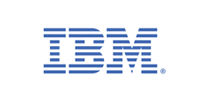
Data science professionals are in high demand around the world, and the trend shows no sign of slowing. There are lots of great jobs available, but lots of great candidates too. How can you get the edge in such a competitive field?
Read more
Data science professionals are in high demand around the world, and the trend shows no sign of slowing. There are lots of great jobs available, but lots of great candidates too. How can you get the edge in such a competitive field?
Data science professionals are in high demand around the world, and the trend shows no sign of slowing. There are lots of great jobs available, but lots of great candidates too. How can you get the edge in such a competitive field?
This course will prepare you to enter the job market as a great candidate for a data scientist position. It provides practical techniques for creating essential job-seeking materials such as a resume and a portfolio, as well as auxiliary tools like a cover letter and an elevator pitch. You will learn how to find and assess prospective job positions, apply to them, and lay the groundwork for interviewing.
The course doesn’t stop there, however. You will also get inside tips and steps you can use to perform professionally and effectively at interviews. You will learn how to approach a code challenge and get to practice completing them. Additionally, it provides guidance about the regular functions and tasks of data scientists, as well as the opportunities of the profession and some options for career development.
Let seasoned professionals share their experience to help you get ahead and land the job you want!
What's inside
Syllabus
Building a Foundation
Your job search will be much more effective if you do some primary work before you begin. In Building a Foundation, you’ll learn how to clearly understand the jobs you will be looking for. You’ll learn how to write a basic resume and collect your previous work examples into a portfolio. You’ll also create some other materials that will be useful, such as a cover letter and an elevator pitch
Read more
Syllabus
Good to know
Save this course
Activities
Read 'Introduction to Data Science' by Jake VanderPlas
Show steps
This book provides a comprehensive overview of data science concepts and techniques, which will enhance your understanding of the field.
View
Python Data Science Handbook: Essential Tools...
on Amazon
Show steps
-
Read each chapter thoroughly.
-
Take notes on key concepts and examples.
-
Complete the exercises at the end of each chapter.
Complete code challenges on platforms like HackerRank and LeetCode
Show steps
Practicing code challenges sharpens your problem-solving skills and prepares you for technical interviews.
Browse courses on
Coding Challenges
Show steps
-
Choose a platform and start solving problems.
-
Start with easier problems and gradually increase the difficulty.
-
Review your solutions and identify areas for improvement.
Join a data science study group or online community
Show steps
Engaging with peers can provide valuable insights, support, and motivation throughout your job search journey.
Show steps
-
Search for study groups or online communities focused on data science.
-
Join the group and actively participate in discussions and activities.
-
Share your knowledge and experiences with others.
Four other activities
Expand to see all activities and additional details
Show all seven activities
Build a simple data visualization portfolio
Show steps
Creating a portfolio of your data visualizations will showcase your skills and help you stand out to potential employers.
Browse courses on
Data Visualization
Show steps
-
Gather data on a topic that interests you.
-
Clean and prepare the data.
-
Choose appropriate visualization techniques to present the data.
-
Create interactive or static visualizations using tools like Tableau or Python.
Reach out to professionals in the data science field
Show steps
Finding a mentor can provide you with valuable guidance, support, and insights throughout your career journey.
Show steps
-
Identify potential mentors who work in the data science field.
-
Reach out to them via email or LinkedIn.
-
Schedule a meeting to discuss your career goals and seek their advice.
Attend industry events and conferences
Show steps
Attending industry events allows you to connect with professionals in the data science field, explore job opportunities, and stay updated on the latest trends.
Show steps
-
Research upcoming industry events and conferences related to data science.
-
Register and attend the events.
-
Network with attendees, including recruiters and hiring managers.
Develop a personal data science project
Show steps
Working on a personal project allows you to apply your data science skills, explore your interests, and build a portfolio of your work.
Browse courses on
Data Science Projects
Show steps
-
Identify a problem or topic that interests you.
-
Gather and prepare the necessary data.
-
Develop a model or solution to address the problem.
-
Evaluate the results of your project.
Read 'Introduction to Data Science' by Jake VanderPlas
Show steps
This book provides a comprehensive overview of data science concepts and techniques, which will enhance your understanding of the field.
View
Python Data Science Handbook: Essential Tools...
on Amazon
Show steps
- Read each chapter thoroughly.
- Take notes on key concepts and examples.
- Complete the exercises at the end of each chapter.
Complete code challenges on platforms like HackerRank and LeetCode
Show steps
Practicing code challenges sharpens your problem-solving skills and prepares you for technical interviews.
Browse courses on
Coding Challenges
Show steps
- Choose a platform and start solving problems.
- Start with easier problems and gradually increase the difficulty.
- Review your solutions and identify areas for improvement.
Join a data science study group or online community
Show steps
Engaging with peers can provide valuable insights, support, and motivation throughout your job search journey.
Show steps
- Search for study groups or online communities focused on data science.
- Join the group and actively participate in discussions and activities.
- Share your knowledge and experiences with others.
Build a simple data visualization portfolio
Show steps
Creating a portfolio of your data visualizations will showcase your skills and help you stand out to potential employers.
Browse courses on
Data Visualization
Show steps
- Gather data on a topic that interests you.
- Clean and prepare the data.
- Choose appropriate visualization techniques to present the data.
- Create interactive or static visualizations using tools like Tableau or Python.
Reach out to professionals in the data science field
Show steps
Finding a mentor can provide you with valuable guidance, support, and insights throughout your career journey.
Show steps
- Identify potential mentors who work in the data science field.
- Reach out to them via email or LinkedIn.
- Schedule a meeting to discuss your career goals and seek their advice.
Attend industry events and conferences
Show steps
Attending industry events allows you to connect with professionals in the data science field, explore job opportunities, and stay updated on the latest trends.
Show steps
- Research upcoming industry events and conferences related to data science.
- Register and attend the events.
- Network with attendees, including recruiters and hiring managers.
Develop a personal data science project
Show steps
Working on a personal project allows you to apply your data science skills, explore your interests, and build a portfolio of your work.
Browse courses on
Data Science Projects
Show steps
- Identify a problem or topic that interests you.
- Gather and prepare the necessary data.
- Develop a model or solution to address the problem.
- Evaluate the results of your project.
Career center
Data Scientist
Machine Learning Engineer
Data Analyst
Statistician
Data Architect
Software Engineer
Financial Analyst
Marketing Analyst
Product Manager
Data Engineer
Chief Data Officer
Project Manager
Data Strategist
Business Analyst
Operations Research Analyst
Reading list
Share
Similar courses
OpenCourser helps millions of learners each year. People visit us to learn workspace skills, ace their exams, and nurture their curiosity.
Our extensive catalog contains over 50,000 courses and twice as many books. Browse by search, by topic, or even by career interests. We'll match you to the right resources quickly.
Find this site helpful? Tell a friend about us.
We're supported by our community of learners. When you purchase or subscribe to courses and programs or purchase books, we may earn a commission from our partners.
Your purchases help us maintain our catalog and keep our servers humming without ads.
Thank you for supporting OpenCourser.



